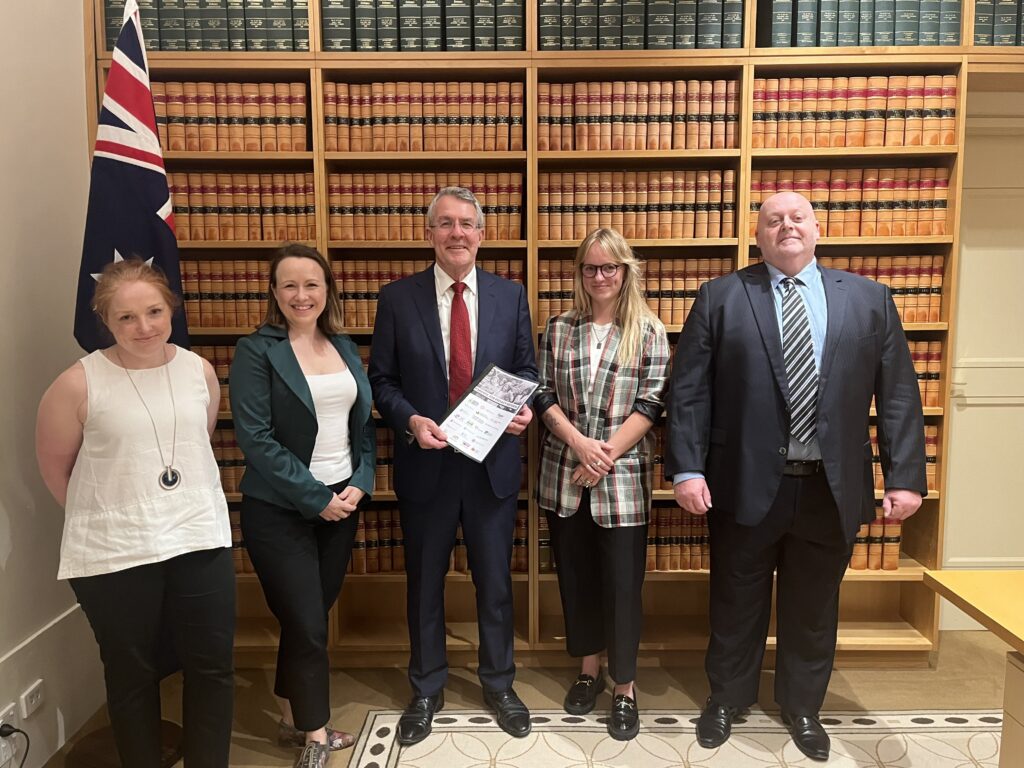The current state of privacy law in Australia allows data accumulation on a mass scale with few limits.
The current state of privacy law in Australia puts millions of children at risk of surveillance and tracking by unknown entities.
The current state of privacy law in Australia allows the interests of EdTech companies to be prioritised over the rights of children.
The current state of privacy law in Australia allows children’s digital spaces to be designed for endless engagement, rather than meaningful connection.
Electronic Frontiers Australia is deeply concerned about the role of technology on children’s education, environments, and their daily lives.
Australia’s commitment to privacy rights is lagging far behind similar liberal democracies. This poses a particular danger for children given their specific vulnerabilities. Children are bearing the brunt of technological advancements, data collection, and monetization, becoming collateral damage in the process.
This has to stop.
Electronic Frontiers Australia, Digital Rights Watch, and a collective of privacy and children’s safety advocates, have collaborated to call out the negative impacts of invasive and secretive data-driven business models upon children—and indeed everyone—that the Privacy Act currently leaves unchallenged. Urgent action is required to modernise Australia’s privacy laws for the twenty-first century.
EFA is confident that together, we can transform ‘lagging behind’ into ‘leading the charge’.
Australia should not be a country that allows young people to be inducted into a digital world characterised by extremism and misinformation.
The data-driven economy must undergo a recalibration to allow young people to regain their autonomy. Parents should feel comfortable that their children’s education, socialising and exploration online, is conducted with respect for privacy.
This means immediate and bold privacy reform to address laws that allow for endless engagement, targeted online advertising, rampant misinformation, and the normalisation of surveillance and algorithmic manipulation in daily online interactions.
The Privacy Act has been the subject of a years-long review process, and extensive community engagement. The latest report from the Attorney General’s department made dozens of recommendations, which were largely accepted by the Australian government in September 2023. The next stage is for the bill to be tabled. However, ourselves and our fellow advocates in privacy, digital and civil society are growing concerned about when this privacy legislation will be given priority.
That’s why, last week, Electronic Frontiers Australia supported Digital Rights Watch‘s campaign to deliver an open letter to Attorney General Mark Dreyfus, signed by 21 organisations, and over 800 members of the public in support.

L-R: Rebecca Patterson, Director – Alliance for Gambling Reform, Lizzie O’Shea, Chair – Digital Rights Watch, Mark Dreyfuss – Commonwealth Attorney General, Samantha Floreani, Head of Policy- Digital Rights Watch, John Pane, Chair – Electronic Frontiers Australia.
Read the full letter and organisational signatories here.
Electronic Frontiers Australia looks forward to supporting the progress of the Attorney General’s department and government in implementing recommendations from the recent review.
Will you support Electronic Frontiers Australia as we continue to fiercely advocate for legislation that reflects the realities of the digital age and protects the rights of all Australians?
For interviews/media requests contact: John Pane – Chair of Electronic Frontiers Australia (media@efa.org.au)
(Image credit: iStock)
Related Items:
- Protecting Children’s Privacy from Big Tech and Media Giants 23 September 2023
- Latitude Financial Data Breach Proves Privacy Must… 27 March 2023
- EFA's Open Letter: Reconsider Industry Standards for… 20 December 2023
- Electronic Frontiers Australia - ‘Experts Weigh in’ 1 October 2021
- EFA Welcomes Government Decision To Reject Online… 31 August 2023
